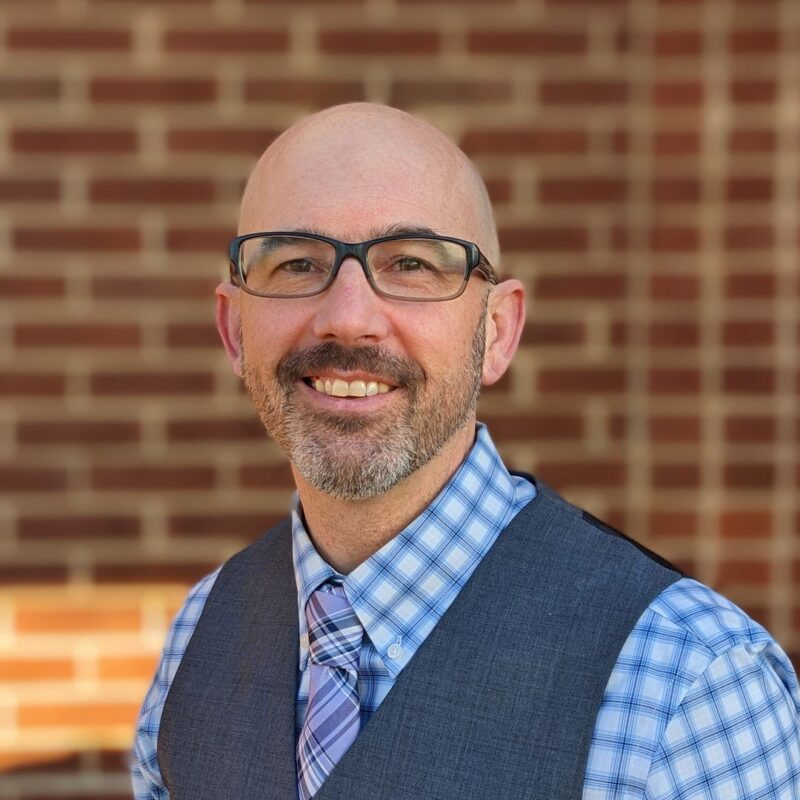As a result of one of the toughest budget seasons in recent memory, County Executive Bob Tucker’s $293.8 million budget does not include any funding for Creciendo Juntos (CJ), a staple for the local Latino community. CJ, formed in 2005 by the Piedmont Housing Alliance (PHA), is a network of service providers that cater to area Latinos.
|
Peter Loach, treasurer of Creciendo Juntos and an administrator for the Piedmont Housing Alliance, calls the loss of county funding a “a serious setback for CJ’s efforts,” one that threatens positions and training events for the organization. |
The county’s $12,800 cut from the PHA’s Latino Initiative represents half of CJ’s local support. The Board of Supervisors will officially adopt a budget on April 7, after a public hearing on March 31.
In an e-mail to the Board of Supervisors, Peter Loach, CJ’s treasurer and a member of the Governor’s Latino Advisory Board (as well as a PHA Administrator) was “shocked” to see the funds cut. “I believe,” he wrote, “that the Office of Housing did not have the opportunity to understand CJ’s impact.” CJ will still receive about the same amount—$12,800—in funds from the City of Charlottesville, says Loach.
In five years, CJ has organized and implemented training sessions with more than 1,500 service agency providers in the area through more than 50 events, discussion groups and workshops, according to Loach. Given the recommended cuts, “We are just not going to be able to do as many trainings and we are not going to be able to do as much organizing,” he told C-VILLE.
Loach says he was surprised to hear about the funding cut because CJ received two letters of recommendation—one from the county Social Services department, and one from former Governor Tim Kaine. “[CJ] is teaching all these service providers how to address cultural competency issues and address meeting people from different backgrounds,” he says.
Jon Nafziger, CJ’s vice chair, says that the group has offered “tremendous service” to the community over the past several years, and cuts will inevitably affect the group’s effectiveness.
“We have a half-time coordinator right now, and I think it will put that position in jeopardy,” he says. The absence of county funding “will be a serious setback for CJ’s efforts. We will regroup and continue as best we can, but it’s going to make a huge difference in terms of the level of service that we can provide.”
The Latino population in Charlottesville and Albemarle has increased steadily. According to 2008 Census numbers, 3.5 percent of Charlottesville’s population identifies as Latino, a total of about 1,452 people. In Albemarle County, about 3,480 people—3.7 percent of the population—identify as Latino.
Ron White, director of Housing for the county, says that while the cuts were necessary, they were not easy to make.
“The reductions had nothing to do with a decision or a determination of the importance or unimportance of a particular program,” he says. “It’s unfortunate that we were in a situation that that had to happen, but it’s a combination of reductions in state funding, of reduction in sales tax revenues and a reduction in property values.”
In the budget process, county staff were asked to look at state- or federally mandated programs and identify which initiatives did not meet those criteria.
Programs like the county’s house down payment assistance “fell in those categories and those have been eliminated, also,” says White.
White says that county staff and administrators tried to develop a sustainable budget, one that could rebound in three to five years.
“We would hope that as revenues start getting better and increasing, a lot of these initiatives, that are important initiatives, could be brought back in and supported through the county’s budget,” he says.
For Loach, the county’s support for CJ has leveraged far more than a mere $12,800. In the e-mail to the Board, Loach argues that the total annual leverage for the investment is more than $105,000. “Mostly it’s the time of county staff and city staff and nonprofit staff that are out there doing our training,” says Loach.






